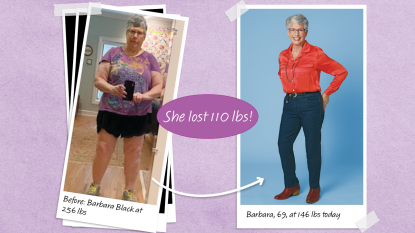Not All Carbs Are Bad! This Type of Bread Can Reduce Your Risk of Heart Disease

Carbs are not very fashionable these days. Low-carb, high-protein diets are popular because they can keep you full for a long time and boost your metabolism. However, extremely low-carb diets can rob you of important nutrients and health benefits. Not all carbs are the enemy, and some, like whole grain bread, can lower your risk of heart disease.
Heart disease is the leading cause of death worldwide, but many forms of it can be prevented with a healthy meal plan. Studies have demonstrated that a daily serving of whole grain bread is an important part of a cardiac diet. Just ask celebrity chef and certified nutritionist Serena Poon, who is a strong proponent of whole grains.
“Whole grains supply many nutrients that support heart health such as B vitamins, vitamin E, and magnesium, as well as antioxidants, phytochemicals, and fiber,” Poon says. “Carbs get a bad rap, but they are really crucial for providing your body with energy. Instead of trying to eliminate carbohydrates, it is best to focus on quality, especially if your goal is heart health.”
Indeed, many of the vitamins and minerals in whole grains are associated with a lower risk for cardiovascular disease. As noted in a study from the American Journal of Therapeutics, vitamin E helps to prevent plaque from hardening on the walls of arteries. A paper from the Journal of the American Heart Association states that magnesium also boosts cardiac health, possibly because it reduces arrhythmia, prevents the dysfunction of blood vessels on the heart’s surface, and takes down inflammation. In addition, Harvard Medical School explains that vitamin B is essential to the production of red blood cells, and a deficiency in certain B vitamins may lead to heart failure.
As Poon points out, fiber might be one of the most important nutrients in whole grain bread. “Research demonstrates that a diet that is high in fiber can significantly reduce the risk of developing cardiovascular disease,” she says. “Fiber is really one of the most important components of a healthy diet. Fiber keeps your digestive system and gut microbiome healthy, which in turn supports overall health including heart health, mental health, immune function, and skin health.”
How does fiber work to keep the whole cardiovascular system healthy? In a study published in Current Atherosclerosis Reports, researchers explained that whole grains high in fiber decreased “bad” LDL cholesterol, lowered blood pressure, and helped the body better regulate blood sugar levels. Another study from the Journal of the American Medical Association found that for every 10 grams of fiber per day, study participants reduced their risk of a heart disease-related death by 19 percent. The reason? Researchers believed that dietary fiber improved cholesterol levels in the blood, reduced blood pressure, and boosted the body’s sensitivity to insulin.
So, how do you find a healthy grain bread at your local grocery store or bakery? Poon suggests looking for loaves labeled as “whole grain,” “unrefined,” and “high fiber.” The grains in the bread should be in their complete form rather than processed, refined, or fortified. Some brand names to look out for include Mestemacher Natural Fitness Bread, Dave’s Killer Bread with 21 whole grains and seeds, and Ezekiel 4:9 Sprouted Whole Grain Bread.
Poon notes that sprouted grain breads are a top choice. “Sprouted whole grain breads are the best options as the process of sprouting the grain increases the bioavailability of the nutrients, the digestibility of the grain, and reduces the presence of phytic acids, which can be found in grains and make it more difficult to absorb nutrients.”
As for portion size, Poon believes that whole grain bread is great for everyday fiber but shouldn’t be your only source of fiber. “One to two slices of whole grain bread would be fine, but I would break up the carbohydrate intake with other foods to add a variety of nutrition,” she states.
If you’re looking for simple meal ideas, Poon’s got you covered there, too. She loves to pile nutritious toppings onto her bread. “One of my favorite toasts includes whole grain toast topped with sliced avocado (heart healthy fats!) and sprouts,” she says. “Spreading a high-quality nut or seed butter on a slice of sprouted whole grain toast and topping with fresh berries or sliced banana and flax seeds is a nice option that also provides heart healthy omega-3 fatty acids. Another heart healthy toast recipe is whole grain toast topped with hummus, sliced radishes, a drizzle of extra-virgin olive oil and a sprinkle of Himalayan Sea salt.”
With the help of these nutritious, easy recipes and a simple swap of whole grain bread for white bread, you can significantly boost your heart health without gaining weight.













